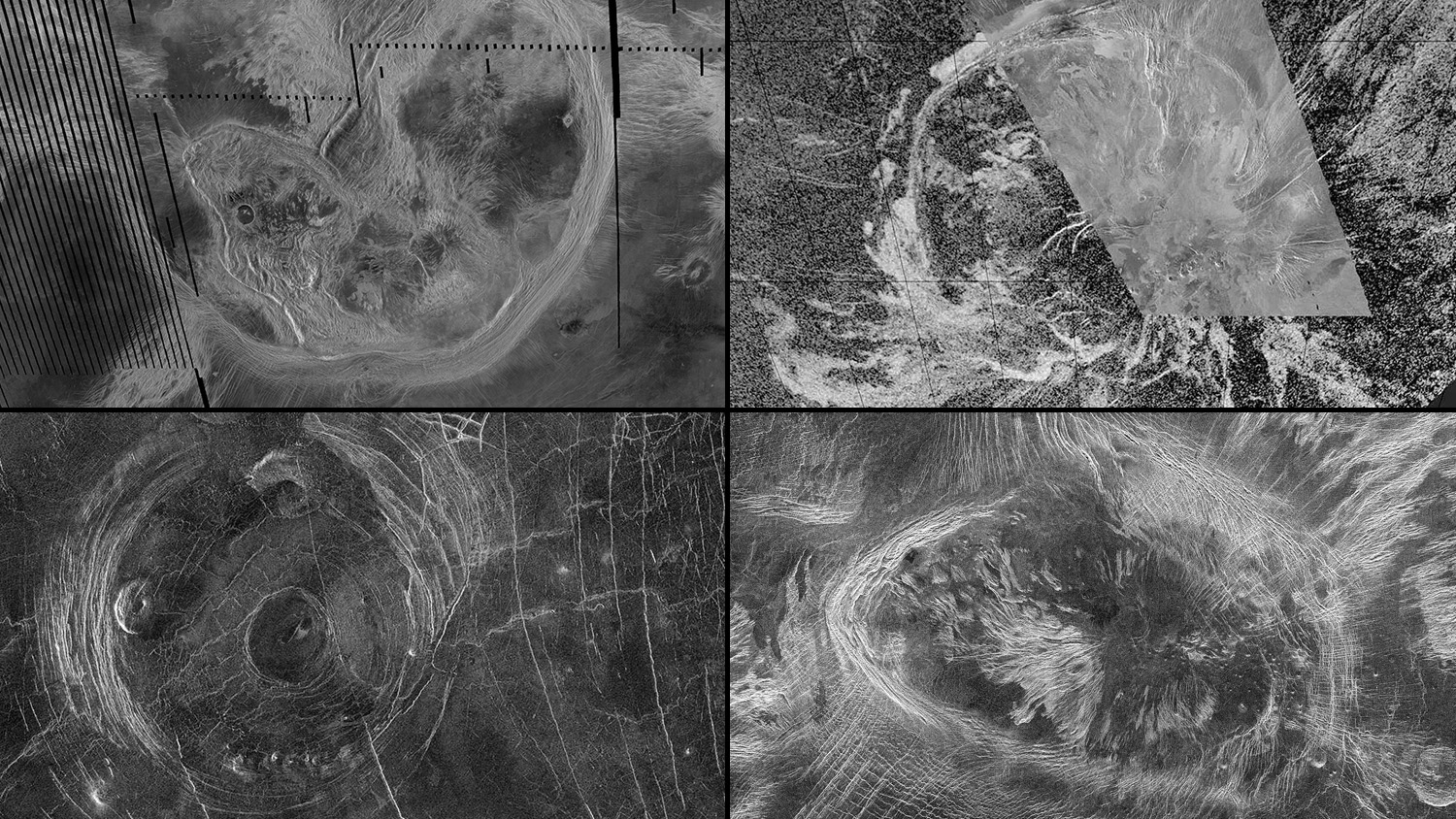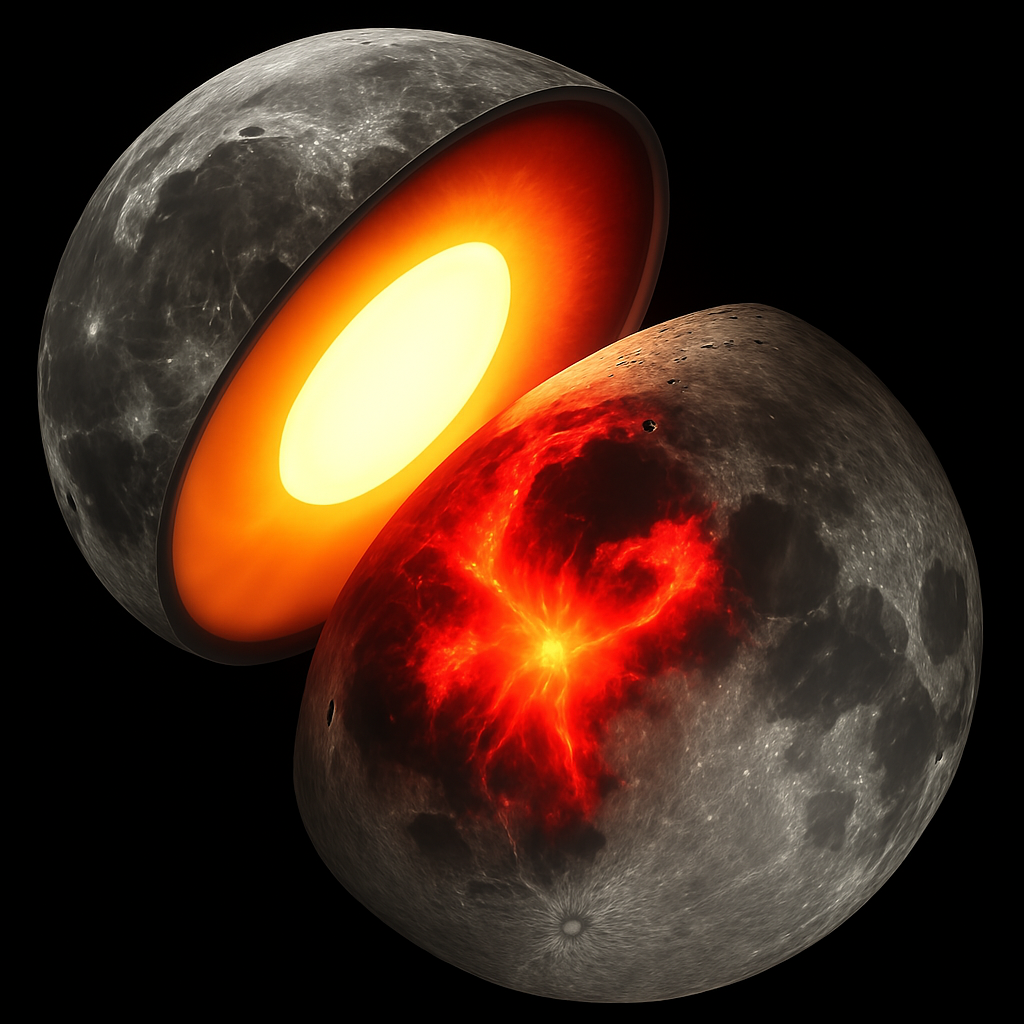2025-05-14 NASA

New research suggests vast surface features on Venus called coronae continue to be shaped by tectonic processes. Observations of these features from NASA’s Magellan mission include, clockwise from top left, Artemis Corona, Quetzalpetlatl Corona, Bahet Corona, and Fotla Corona. NASA/JPL-Caltech
NASAのマゼラン探査機による新たな研究で、金星の表面に存在する「コロナ」と呼ばれる巨大な円形地形が、現在も地殻変動によって形成・変形されている可能性が示されました。これは、金星が地質学的に活動的であることを示唆する重要な発見です。
研究チームは、1989年に打ち上げられたマゼラン探査機のレーダーデータを解析し、コロナの構造が地殻の上下運動やマグマの上昇によって変形している証拠を発見しました。これにより、金星の地殻が一枚岩であるにもかかわらず、地球のプレートテクトニクスとは異なる「フレークテクトニクス」と呼ばれる独自の地殻変動が存在する可能性が浮上しています。
この発見は、金星が地質学的に活動していないと考えられていた従来の見解を覆すものであり、地球の地質活動や惑星の居住可能性に関する理解を深める手がかりとなります。また、金星の地質活動を解明することで、地球や他の岩石惑星の進化過程や内部構造の比較研究が進むことが期待されます。
<関連情報>
- https://www.nasa.gov/missions/magellan/nasas-magellan-mission-reveals-possible-tectonic-activity-on-venus/
- https://www.science.org/doi/10.1126/sciadv.adt5932
重力と地形が明らかにする金星のコロナにおける地殻変動プロセスのスペクトル A spectrum of tectonic processes at coronae on Venus revealed by gravity and topography
Gael Cascioli, Anna J. P. Gülcher, Erwan Mazarico, and Suzanne E. Smrekar
Science Advances Published:14 May 2025
DOI:https://doi.org/10.1126/sciadv.adt5932
Abstract
Coronae on Venus are key to understanding the planet’s geodynamics. Their formation is often linked to plume-lithosphere interactions, with some coronae showing signs of plate boundary-like processes such as subduction. However, the low resolution of Venus gravity data limits detailed analysis of these features. Using 3D geodynamic models, we predict gravity signals under various plume-induced corona formation scenarios. Comparing these predictions to observations, we show that combining topography and gravity data is more effective for understanding dynamic processes than using topography alone. Of the 75 resolved coronae, gravity indicates buoyant mantle material beneath 52. We predict a range of plume-lithosphere interactions and activity stages across these coronae. Moreover, we find that the limited resolution of the Magellan gravity field can obscure gravity signatures otherwise indicative of plume activity. The upcoming VERITAS mission will greatly improve gravity resolution, which will resolve 427 coronae, enhancing our understanding of Venus’ lithospheric structure and geodynamics.



